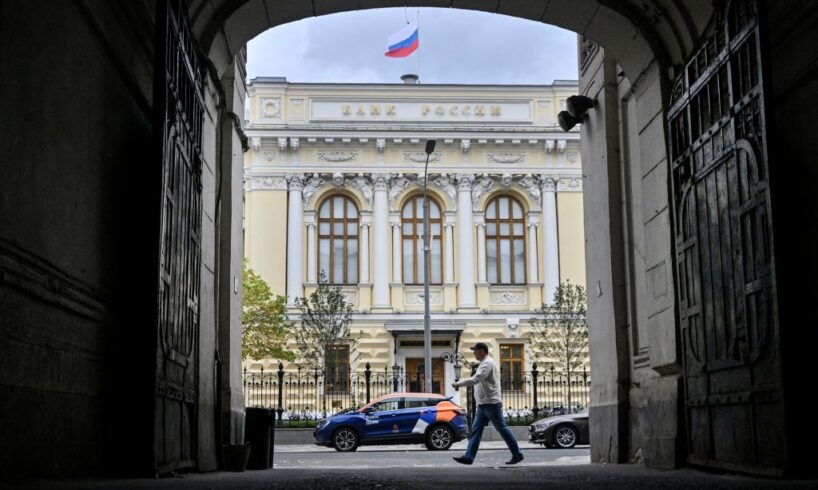
Russia has revived barter in its foreign trade for the first time since the 1990s, exchanging goods such as grain and flax seeds for Chinese cars and construction materials in an effort to evade Western sanctions, Reuters reported Sept. 15.
The growing use of barter reflects the mounting pressure that sanctions and geopolitical isolation have placed on Russia’s economy—particularly its foreign trade—since the full-scale invasion of Ukraine in 2022.
Since 2014, the United States, European Union, Canada, and other allies have imposed more than 25,000 sanctions on Russia in response to its illegal annexation of Crimea and 2022 full-scale invasion of Ukraine. Other punitive measures have included disconnecting Russian banks from the SWIFT payment system, which facilitates international money transfers.
While Russia’s economy initially grew in the wake of the invasion—fueled by wartime expansion and record defense spending—financial experts have more recently warned of a technical stagnation, highlighting the limits of Moscow’s war-driven economy.
The resurgence of barter has also been driven in part by the threat of secondary sanctions targeting Russia’s biggest trade partners, especially China and India.
“Chinese banks are afraid of being placed on sanctions lists, under secondary sanctions, so they do not accept money from Russia,” a source told Reuters. In one recent example, a Chinese bank reportedly stopped accepting Russian payments after being sanctioned by the European Union—underscoring the financial risks of continued trade with Moscow.
To help facilitate barter, which circumvents international payment systems, Russia’s government issued a 14-page “Guide to Foreign Barter Transactions,” advising companies on how to exchange goods and services without money transfers. Russia’s economy ministry has even suggested creating a barter trading platform.
Reuters identified eight recent barter deals. In one, Chinese cars were exchanged for Russian wheat. In another, flax seeds were traded for Chinese household appliances and building materials. A separate transaction with Pakistan was also confirmed, though details were not disclosed.
While Reuters was not able to confirm the overall value and volume of barter transactions, multiple sources told Reuters that the practice is becoming more common. One source, speaking on condition of anonymity, said barter helps bypass sanctions that prevent Russian banks from conducting transactions in U.S. dollars and euros through systems like SWIFT.
While barter may offer a respite from sanctions, the practice highlights deeper economic vulnerabilities. Russia’s top financial specialists have repeatedly warned of an economic downturn, and tensions between the government and economic community—including a reported clash between President Vladimir Putin and Sberbank CEO German Gref—underscore growing concern over the sustainability of Russia’s wartime economy.
Ukraine war latest: Ukrainian troops clear another village near Dobropillia in Donetsk Oblast, military reports
Key developments on Sept. 15: * Ukrainian troops clear another village near Dobropillia in Donetsk Oblast, military reports * Syrskyi dismisses 2 corps commanders over lost territory, media reports * Ukraine tests new kamikaze drones resistant to Russian jamming * Starlink ‘down across the entire front line’ in Ukraine as internet service suffers global outage Ukrainian forces have cleared Russian troops from the village of Pankivka in the Dobropillia sector of Donetsk Oblast, the National





